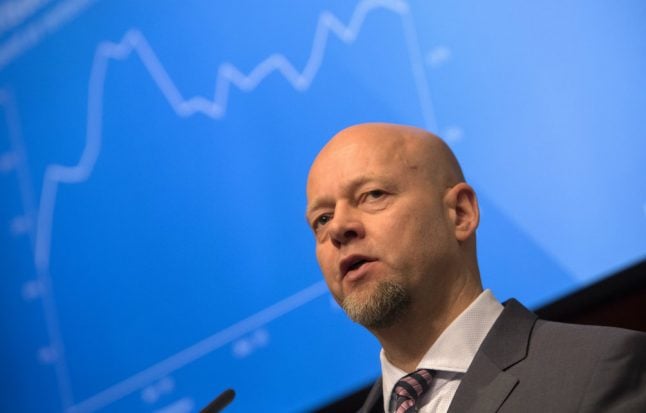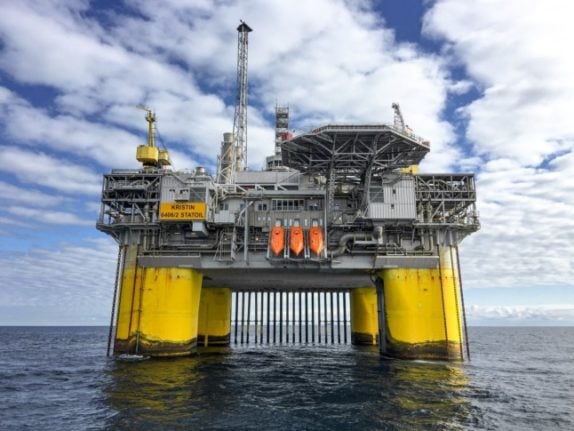Yngve Slyngstad announced he would leave the position as head of the world largest sovereign wealth fund, after nearly 12 years at the helm, during a press briefing held in conjunction with fund's release of its third quarter financial report.
The announced came after the fund reached a market value of over 10 trillion Norwegian kroner (about $1.1 trillion or 975 billion euros) last Friday.
“It is an important milestone that the fund's market value passed 10 trillion kroner 25th October… We have delivered good returns for the best of our nation,” Slyngstad said in a statement.
A successor was not named and the fund's executive board said it would “now start searching for a new CEO.”
The fund — which manages the country's oil revenues in order to finance Norway's generous welfare state when its oil and gas wells run dry — attained a return of 1.6 percent, or 236 billion Norwegian kroner in the third quarter.
In the second quarter the return was three percent.
“Equity returns were positive despite relatively weak data for global industrial activity during the quarter,” the central bank of Norway, which manages the fund, noted in the report.
“Actual and expected monetary easing in the US and the euro area, as well as a substantial drop in long-term interest rates, probably boosted global equity prices. There was also uncertainty about the US-China trade talks and the UK's departure from the EU,” it added.
Equity investments, which account for 69.1 percent of the fund's assets, returned 1.3 percent.
Investments in the US, which make up slightly over 40 percent of the fund's equity holdings, returned 2.9 percent.
European shares only produced a flat return, with UK holdings dragging down results, as uncertainty surrounding Brexit persisted.
With stakes in over 9,000 companies, the Government Pension Fund, also called the Norwegian oil fund, on average controls 1.4 percent of the world's market capitalisation.
In the third quarter, investments in US tech company Apple, Google's parent company Alphabet and consumer goods company Nestle accounted for the biggest returns.
Fixed-income investments, which make up 28.2 percent of the fund, returned 2.4 percent. Investments in unlisted real estate returned 1.6 percent.
READ ALSO: Why Norway's krone keeps getting weaker



 Please whitelist us to continue reading.
Please whitelist us to continue reading.